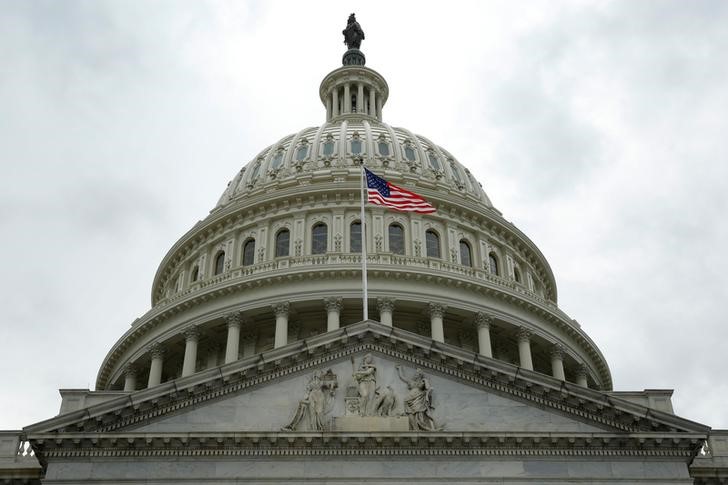By Yasin Ebrahim
Investing.com – The S&P 500 hobbled to negative close on Thursday as its tech-infused advance faded with investors weighing signs of the strength in labor market against worries about the economic recovery as stimulus talks are on ice until September.
The S&P 500 fell 0.22%, failing in its bid to close above the Feb.19 record high of 3,386.15, after struggling to hold gains at a session high of 3,387. The Dow Jones Industrial Average fell 0.29%, or 80 points, while the Nasdaq Composite added 0.27%.
Big tech’s dominance was on display again as the broader market retreated after the Fab 5 ran out of steam.
Microsoft (NASDAQ:MSFT) closed negative, while Apple (NASDAQ:AAPL), Amazon.com (NASDAQ:AMZN), Facebook (NASDAQ:FB), and Alphabet (NASDAQ:GOOGL) closed below their session highs.
Apple closed up more than 1% on news the tech giant is set to launch a range of service bundles in October that could rival services to compete with Peloton Interactive (NASDAQ:PTON).
The broader market's struggle to close above all-time highs comes as investors continue to fret over the lack of progress on talks over the next wave of coronavirus stimulus, which may be on hold until next month as the U.S. Senate takes a break.
Without further stimulus, many fear the recovery in the economy will likely fade at a time when the labor market continues to bounce back.
The Labor Department reported that 963,000 Americans filed initial claims for unemployment insurance through Aug. 8, down from 1.2 million a week earlier.
This was the first time since March that claims were below 1 million, adding to investor optimism that a broader economic recovery remains on solid footing despite a lack of progress on a new stimulus plan.
“This week's claims data is the first full week of claims after the August 1 expiration of the enhanced $600 per week benefit provided by the CARES Act,” Jefferies (NYSE:JEF) said. “The data of the past two weeks will not help the arguments of lawmakers fighting to extend the expired benefits.”
The Trump administration last week rejected an offer by House Speaker Nancy Pelosi on a reduced $2 trillion aid bill.
Value stocks - those tied to the progress of the economy - also added downside pressure, paced by weakness in energy and financials.
Energy stocks were pressured by a fall in oil prices as worries about demand resurfaced.
The International Energy Agency slashed its oil demand forecast for the year, by 8.1 million barrels per day, citing reduced air travel.
On the earnings front, Cisco Systems (NASDAQ:CSCO) reported weaker guidance that offset better-than-expected quarterly results, sending its shares down 11%.
Lyft (NASDAQ:LYFT) fell 5.4% after reporting second-quarter revenue fell 61% as the pandemic brought its ride-sharing business to a halt
“Lyft delivered 2Q results in-line with our expectations and with consensus, but July (and early August) trends are pointing to 3Q results below current consensus,” Wedbush warned in a note as it cut its price target on the stock to $37 from $48.
